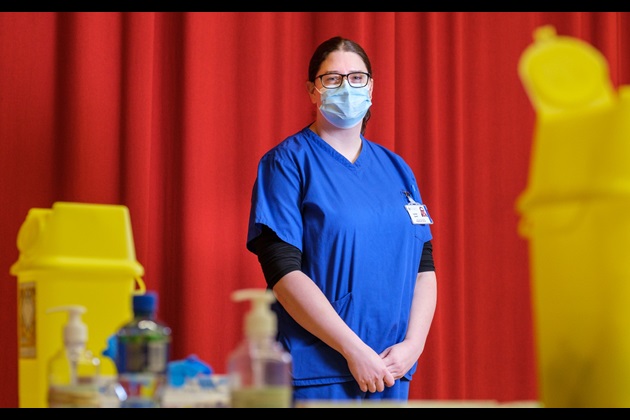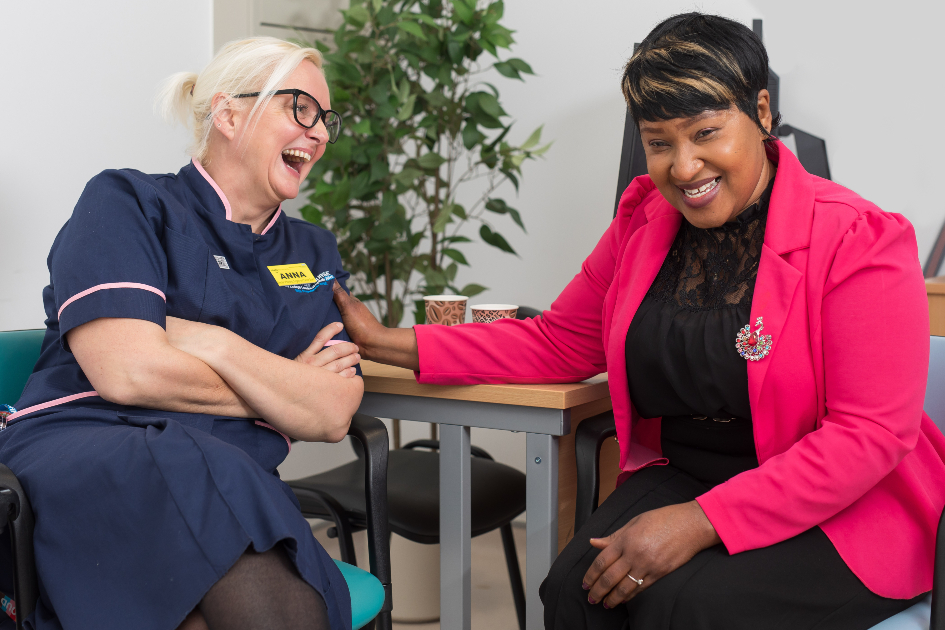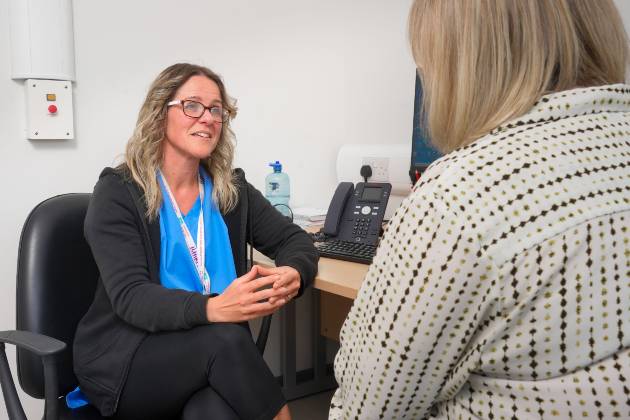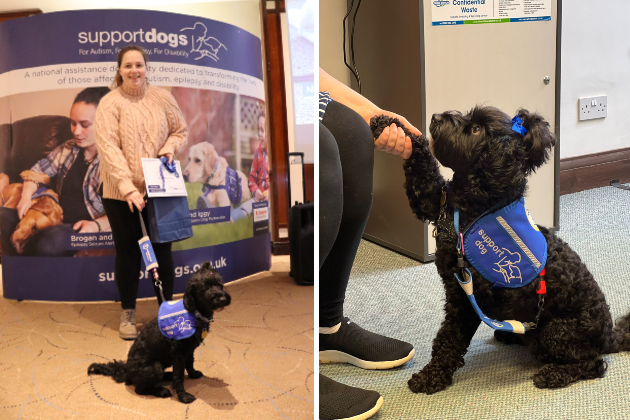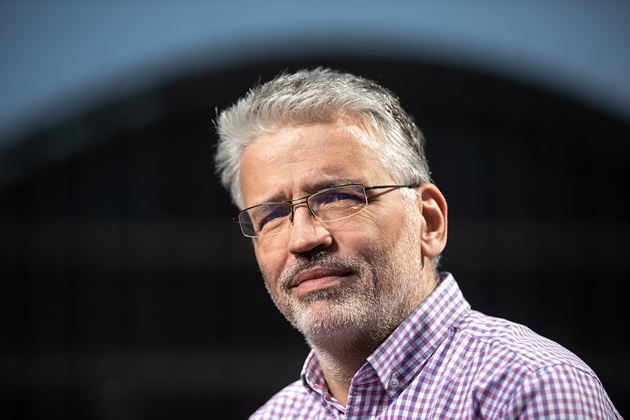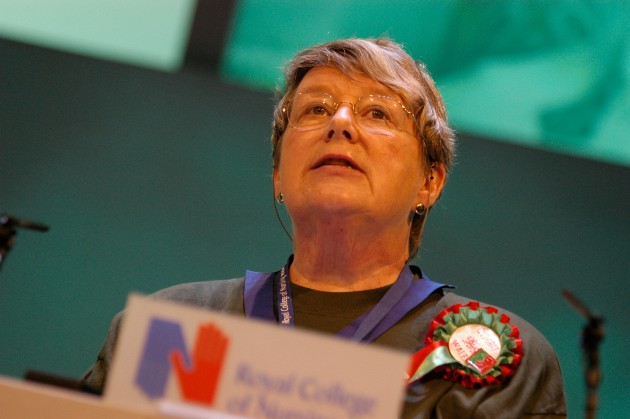Louise Cahill is clinical coordinator of a COVID-19 vaccination centre in Newport, Wales. She talks us through an average day and what it means to be involved in the historic immunisation programme
I get to the centre at 7:30am, change into my scrubs and pick up the keys for our fridges where we store our vaccine. I make sure our stock and fridge temperatures are correct. Then I lay out our laptops. In Wales our immunisation system is electronic, which makes things easier; there’s not paper everywhere, and the system automatically recalls people for their second vaccine.
After that, I turn the urn on so everyone gets a cup of tea or coffee when they arrive. That’s one of the most important jobs of the morning!
Staff come in for 8am. I provide a safety briefing, explaining how our process works, because we often have new staff. There are 20 vaccinators at our centre, but you don’t have the same people every day. I have to allocate staff to cover immunisation, egress (where patients sit for 15 minutes after receiving their vaccine), cleaning, and handling the flow of people.
I like creating calm from chaos – finding structure when every day is different
As well as nurses, we have physiotherapists, occupational therapists, pharmacists, military medics and health care support workers. It’s about making sure everybody is in the right place and appropriately supported, being mindful of their backgrounds and skillsets, and giving them help to build their confidence while playing to their strengths as well.
Learning and adapting
I talk about any incidents at other sites and what we’ve learned. I’ve always liked creating calm from chaos – finding structure in a situation where every day is different. That’s one of the reasons we do a safety briefing each morning: we always learn something from the day before.
Then we kick off our day with vaccinations starting at 8:45am.
From then on, my focus is on ensuring the smooth running of the centre – making sure our systems are working well, patients are flowing through and any issues are dealt with. I also ensure we have enough supplies of the vaccine, needles, gauze, cotton wool, sharps boxes and other consumables.
Managing patient expectations is one of our biggest challenges. A lot of people conflate the COVID-19 vaccine with the flu vaccine: they go into their GP and three minutes later it’s done. With the mass vaccination centre, the process is longer. Good communication is key, so people understand that it takes time to enter the building with social distancing, be checked for symptoms, receive information about the vaccine, and wait for 15 minutes afterwards.
Patients also need to understand they won’t immediately have immunity. We have to say: please keep using PPE and social distancing, and come back for your second dose.
Providing reassurance
Nurses are used to exploring things with patients, giving people space to share concerns. Some people who’ve been vaccine-hesitant coming in have left with their vaccine. That’s a testament to our immunisers.
Our goal is to vaccinate 1,200 people per day. The target makes me focus on patient flow, which is a balancing act with patient experience. You want patients to feel safe and get all their questions answered, while also keeping things moving.
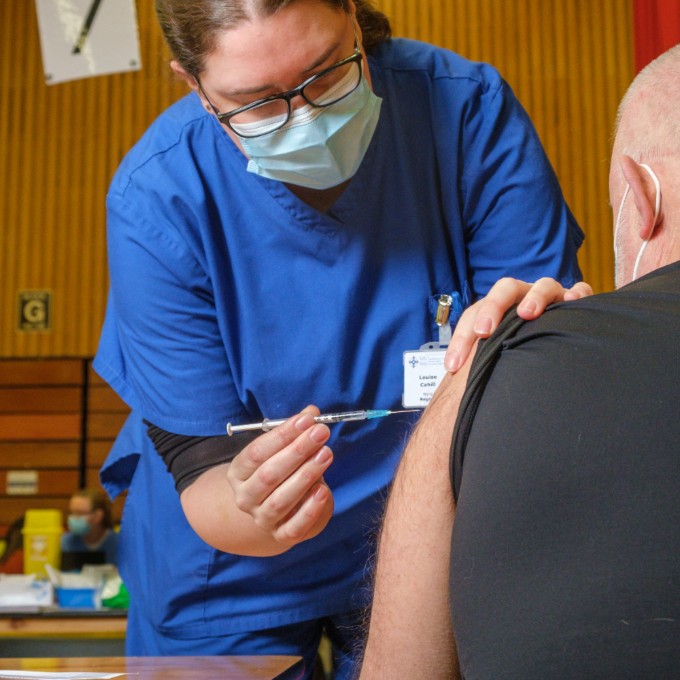
It’s a lot of responsibility but I really enjoy it. The team I work with is fantastic. It feels monumental and when you’re working in operations, you realise what a massive challenge this is.
Above me is Wendy Warren who set up all the mass vaccination centres in the region, she’s also a nurse, as is our lead emergency planning nurse Sara Goode. It’s great to see nurses filling these important roles but I wish more people were aware of nursing’s involvement in the success of the vaccine rollout. There are still too many medics speaking on behalf of our profession. This is a proud moment for nursing, and we should claim that pride. Hope really is in our hands.
10 tips for talking about vaccinations
Nursing staff are an important and trusted source of advice on vaccinations. The approach you take, whatever your role and wherever you work, is key:
- Remember the aim of the conversation is to gain trust and support people to hopefully accept vaccination.
- Raising the subject gives the message that this is important and gives people permission to ask questions.
- Ask questions to help understand the individual’s main concerns. Listen to them.
- Be empathic. Tell them you understand why they might be concerned and why they may have questions.
- Acknowledge we all want what’s best for ourselves and our loved ones.
- Avoid fact-filled lectures which could be counterproductive. Stick to the concerns raised and provide a limited number of main points in response, expressed simply.
- Focus on the risk to them. Many people have little experience of diseases because of the success of other vaccination programmes.
- Identify a myth as being false and focus on the benefits of vaccination while acknowledging the side effects of vaccines.
- Highlight the consensus among health professionals and scientists about the evidence in support of vaccination. Confirming that you’ve received the vaccine sets an important example.
- If people decide not to be vaccinated, be clear they can change their mind at any stage and leave the door open for further discussion.


